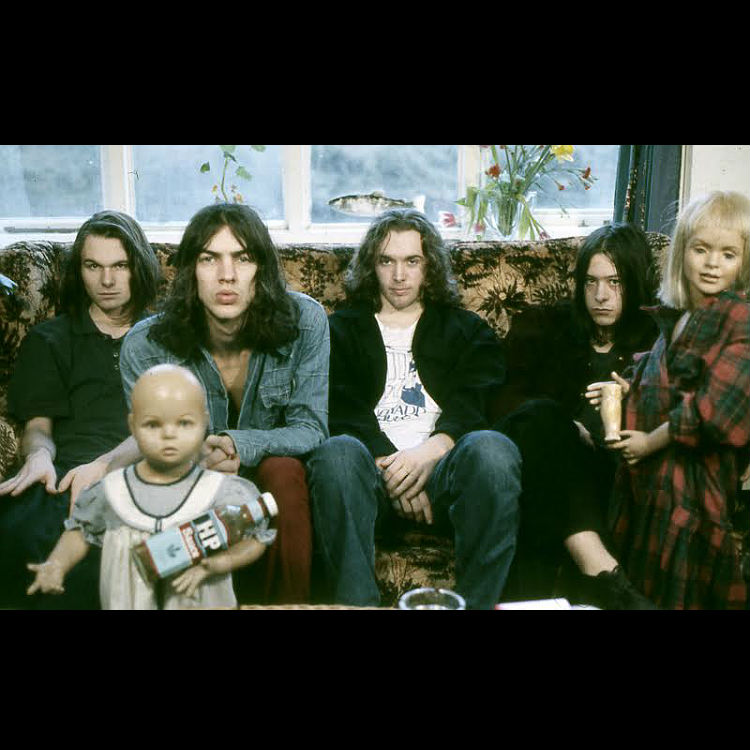 Photo: Press
Photo: Press
The Verve’s gradual rise into the pop firmament and subsequent release of three monumental albums through out the 1990s, each one more commercially successful than its predecessor, might seem standard career fare and indeed fair do’s to most. Critical success for The Verve, however, throughout the years is a more complex tale.
Critically, or at least from a true fan perspective, the band’s third and all conquering block buster 1997s Urban Hymns does not sit astride the same mind bending dimension as 1993’s A Storm in Heaven and A Northern Soul from 1995. And in turn, twenty-five years on debate still burns on that the band’s ‘93 debut is in fact the lost genius of this stirring, aural triptych.
Virgin/EMI’s reissue of A Storm in Heaven and A Northern Soul, remastered and with additional nougats such as a Camden Town Hall concert film and various demos and radio sessions is the definitive document for listeners new and old to understand the weighty oneness that is The Verve’s early body of work.
The Verve, amidst the recording of A Northern Soul were a band regularly unsettled by internal upsets and random episodes, culminating in their first great division shortly after its release in June ‘95. The band were no more until perhaps a Britpop inspired, and Noel Gallagher fed charge that resulted in the creation of what was to become one of the decade’s behemoth offerings, Urban Hymns.
It has been argued that the aforementioned Gallagher was perhaps responsible for the mid 90s nouveau fan, not usual of The Verve’s alt-rock demographic, dutifully latching on, and perhaps unaware of the band’s taut history, and not-to-mention depth. Doubtful, but if true and record sales are to be judged then no bad thing at all, and that Mr G make a mate for life is assured.
The Verve’s first two long players are no face-off but a compliment to one and other, and when it comes down to it are really just a tale of two producers, John Leckie and Owen Morris who respectively, in ’93 and ’95 guided the band to reach maximum potential and paved the way for their soon-to-come mainstream success.
Listening through the box set informs the listener that for a short period in a starry eyed time, as each year and each argument chipped away they some how remained a fully tuned engine, and when primed with the right energies, those first two albums burned brightly across what was to become a fast deteriorating Britpop landscape.
If there was ever justification to put these two albums at loggerheads, a quarter of a century on it must now be redundant. A long overdue re-listen only enforces the idea that historically the two albums are perfect partners. A pairing that might be a call and response to the delusional, drug fixated, early / mid 90s revivalist mentalities before the band’s eventual fragmentation, realignment and finally the post-scripted deluge of Urban Hymns.
A Northern Soul is an astonishing alt rock album that indeed pummels the stargazer dreaminess of the previous offering with its tortured glamour of industrial sized proportions. Some have been known to attack the big production, with its almighty gleam and sheen. Perhaps with the exception of ‘Brainstorm Interlude’, and outside of Nick McCabe’s reverb tendencies the album does not offer too much in the way of psychedelia or colour at all. But hypnotic it certainly is.
Northern Soul is a testament to giving up; and restarting just to discover you then want to give up again. Brian Canon’s cover art curiously has the stark projection of full band against a lone figure walking through a door. ‘A New Decade’, ‘This Is Music’. The album’s content could be a paean reflecting the band’s doubt. This is not the ‘Bittersweet Symphony’ as we are to later understand The Verve, but more the cold chorus of perhaps dark days ahead.
A Storm In Heaven somehow found its way into the shoegaze or psychedelic camp much more so that its successor. Certainly more druggy and laconic in its sound than the follow up – ‘The Sun and the Sea’ especially comes on all mushroom-head with a groove that is Soft Machine freeform meshed with Planet Gong sax runs. But when listened to again for the first time in over 10 years it clearly demonstrates the ideas in which the band were looking to get to in the follow-up.
‘Already There’ and ‘Beautiful Mind’ are fundamental in their internal meandering and pivotal to understanding what was to become the band’s second album and tracks like ‘Life’s An Ocean’ and ‘Stormy Clouds’. One suspects an easy match-make for the incoming producer Owen Morris.
The two albums demonstrate a band at one, and with a team mission to re-imagine what was to become very ordinary within 90s rock, their own third album included. This package is a superb document and testament to a band’s once greatness and togetherness before something they call a career slowly strips all the pieces away.




















